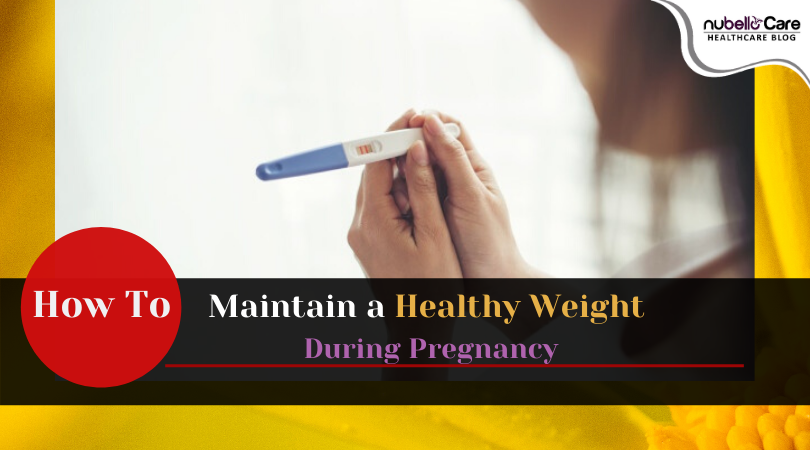
If you are gaining weight during pregnancy then you are not alone. Everyone undergoes weight gain during pregnancy. You should not try to lose weight during pregnancy but you can try to maintain a healthy weight so, that there will not be any complications during pregnancy.
Now the question is, How much weight gain is considered to be “”
Pregnancy can lead to many changes like routines and habits, including what you eat and how much exercise you get. Women’s bodies change during pregnancy so that that their unborn children get enough food and other things that they need. You can observe these changes happening in early pregnancy and become more and more noticeable as time goes on. Usually, Women gain more weight in the final weeks of pregnancy than they do in the first few weeks. This isn’t only due to the weight of the growing baby. Much of the weight gained is extra fluid. This extra fluid is needed for things like the baby’s circulation, the placenta, and the amniotic fluid.
Medical guidelines recommend limiting weight gain to a few kilograms. But there is no standard recommended amount of weight gain that applies to every pregnant woman. The recommendations are now based on women’s pre-pregnancy weight. Petite, underweight women should put on more weight than women who were overweight before they became pregnant.
How to Maintain a Healthy Weight During Pregnancy?
Get into Healthy Weight Before Pregnancy
The most important thing you can do before getting pregnant is to start your pregnancy at a healthy weight.
If you’re trying to conceive, consider making a preconception appointment. Your healthcare provider can help you figure out your current body mass index (BMI) and suggest ways to lose weight if required.
Eat Often With Moderate Quantity
Most women can simply trust their own appetites when it comes to eating during pregnancy. They don’t need a special diet and can eat what tastes good to them and what feels right. But it could be a good idea for some women to change their diet and get some exercise, including women who are very overweight, gain weight very quickly, or have gestational diabetes.
You may not need that many extra calories per day to nourish your growing baby as much you think and consume. Current guidelines suggest you add 340 extra calories per day in your second trimester and 450 extra calories per day in your third trimester if you’re starting pregnancy at a healthy weight. But If in case you are underweight or overweight, these numbers will differ based on your weight gain goal.
That’s not a lot of extras to play around with, so choose foods that pack a big nutritional punch and help you feel satisfied. Focus on small, frequent meals that are high in lean proteins, fruits, and vegetables
Choose Complex Carbohydrates
Carbohydrates can be a pregnant woman’s best friend, especially if you’re battling nausea and vomiting due to morning sickness. But simple starchy food like white bread, rice, and pasta raise your blood sugar. And doesn’t provide you the nutrition that comes with whole grains.
So, it’s better to reach for complex carbohydrates – such as brown rice, quinoa, and whole-grain bread. These things not only provide you and your baby with more nutrients but will help you feel full for longer. Subsequently, you are less likely to give in to unhealthy cravings later in the day.
Drink up to Maintain a Healthy Weight
It’s very important to avoid dehydration during pregnancy. And drinking enough water has the additional advantage of helping you are feeling satisfied between meals and snacks.
The Institute of drugs advises pregnant women to drink 8-10 glasses of water or another beverage every day. Some nutritionists suggest adding more for every hour of sunshine activity.
Other experts suggest monitoring urine color. If it’s dark yellow or cloudy, your body needs more fluids. Sip throughout the day to stay your urine color straw or clear – a symbol of proper hydration.
Drinking water also eases constipation. When you’re pregnant, your gastrointestinal system slows down. Getting enough fluids will help keep things moving along and stop uncomfortable bloating.
Start Walking to Maintain a Healthy Weight
The most important thing any pregnant woman can do is walk. Walking is a great, safe exercise for mums-to-be. It’s an ideal way to make sure you’re getting the exercise you need in pregnancy.
Brisk walking works your heart and lungs, without jarring your knees and ankles. It’s also a free activity that you can easily incorporate into your daily life, so you’ll be more likely to keep it up.
Also Read:
Source: Weight Loss - nubellocare.com



